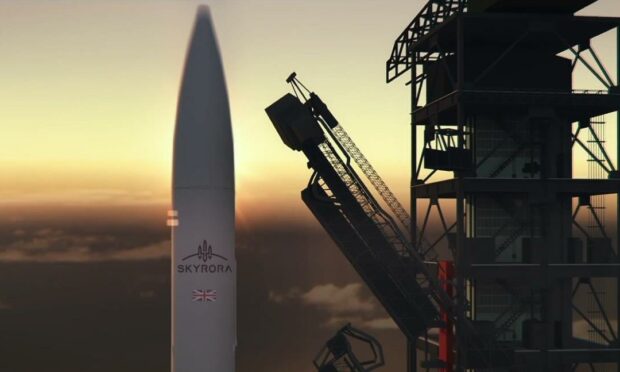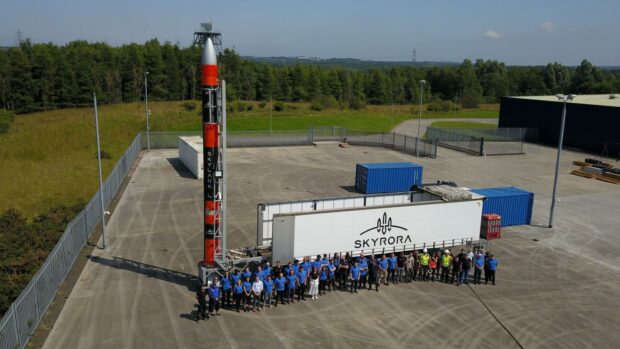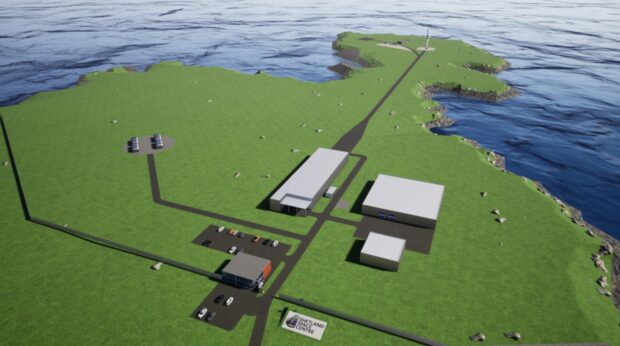Unst in the Sheltand Isles has become the centre of a race to become the launchpad of the UK’s first rocket into space.
Skyrora, a rocket company with its headquarters in Edinburgh, has agreed a multi-launch deal over the next decade with the SaxaVord Spaceport, which is being developed on the most northerly of the Shetland Islands.
Skyrora hopes to send its 23-metre long, 56-tonne XL rocket to deliver satellites into orbit from 2022.
The Scottish company is vying with ABL Space, an American rocket firm which also hopes to launch from SaxaVord next year. The firm is working as the partner of a £40million UK Space Agency “pathfinder” project, which is being led by US aerospace and defence giant, Lockheed Martin.
Skyrora, which recently won €3 million (£2.5m) of co-funding from the European Space Agency (ESA), hopes its agreement with SaxaVord Spaceport, which recently changed its name from the Shetland Space Centre, will help it deliver up to 16 launches a year by 2030.
Once operational, the SaxaVord spaceport is expected to create 140 jobs locally, with an additional 70 jobs across Shetland.
There is another Scottish spaceport plan for Sutherland, on the A’Mhoine peninsula, an area of peatland and crofts near Tongue.
Highlands and Islands Enterprise (HIE) predicts the development would create 61 local jobs and 250 across the region – with 12 rocket launches each year, and the first blasting off in the “early 2020s”.
Commenting on the deal, Skyrora’s founder and chief executive, Volodymyr Levykin, said: “We have made no secret of our ambition to be the first company to launch from UK soil so it’s really exciting to agree to this multi-launch deal with SaxaVord.
“We are proud to be at the forefront of space innovation in the UK, deploying our assets and helping to unlock exciting opportunities as part of the new space economy.
“The UK is a world leader in space technology, and this latest move brings us another crucial step closer to offering a significant space service from our own soil.”
Frank Strang, chief executive of SaxaVord Spaceport, said: “As we look forward to launches from Unst next year, this is yet another exciting development and we look forward to working with the Skyrora team to help them meet their goal of delivering their XL rocket into orbit.
“The SaxaVord Spaceport location and the can-do attitude of our team mean we are perfectly placed to support Skyrora’s endeavours.”
Early trials
In May this year, Skyrora carried out the first, full, ground, static fire, trial rocket trial in the UK for half a century at the Kildermorie Estate near Alness in the Highlands.
It was the first vertical test of this magnitude in the UK since the Black Arrow programme 50 years ago.
At the end of last year, the company also successfully completed trials of the third stage of the Skyrora XL rocket, including its orbital transfer vehicle (OTV), a vehicle that once in orbit can refire its engines about 15 times to complete tasks such as acting as a space tug, maintenance, or de-orbiting of defunct satellites.
Space junk and eco-rocket fuel
The vehicle will be used to address the increasing volume of space debris orbiting Earth, one of the biggest problems facing the global space industry.
For the proposed UK launch next year, Skyrora plans to fuel Skyrora XL rocket with its own more-sustainable alternative to conventional rocket fuel: ecosene.
Made from waste plastic such as polystyrene, ecosene could prevent more than 3,000 tons of unrecyclable plastic going to landfill by 2030, just through use on Skyrora’s planned flights.
Mr Levykin added: “The space industry has a responsibility to commit to sustainability.
“Not just through enabling applications and services, such as through Earth observation, that can help pre-empt and mitigate the impact of climate change, but also by reducing the environmental impact of its own operations.
“With our OTV and ecosene, we are contributing to this new space purpose, helping to tackle both the space junk problem and the impact of traditional fuels.”
Rivals visit
Last week, ABL Space visited Unst for the first time ahead of plans to use its new RS1 rocket and launch system.
Nik Smith, UK and Europe regional director for Lockheed Martin said “Being able to bring our launch partners, ABL Space together with the SaxaVord Spaceport team, alongside our colleagues at the UK Space Agency demonstrates that we continue to make exciting progress towards achieving the first vertical satellite launch in northern Europe in 2022.
“Not only will this launch capability stimulate prosperity in the region and across the UK, but it also marks an important step in achieving the ambitions of the new National Space Strategy.“
Recently the UK government announced it’s National Space Strategy, designed to help the £16bn sector compete with those in the US, China and Europe.


